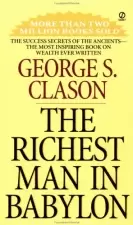R eading is simply the easiest way to cram a lot of new information into your skull. I’m a little skeptical that it does quite as much good if you end up reading exactly what everyone else is reading. With that in mind here are three books I bet you haven’t read.
eading is simply the easiest way to cram a lot of new information into your skull. I’m a little skeptical that it does quite as much good if you end up reading exactly what everyone else is reading. With that in mind here are three books I bet you haven’t read.
Early Retirement Extreme by Jacob Lund Fisker
This is a fundamental reworking of how you view personal finance. I have always summarized the argument as, if you are an environmentalist libertarian you only need to work for five years. Jacob points out the massive waste and fragility of consumer society. He points out that if you’re willing to live in a house the size of your grandparents, drive a car as often as they did, and prepare your own meals in an efficient fashion you can probably save 80% of your income. You then invest this savings as you wish over five years, after which you are financially independent and no longer need to work. The book details a philosophy and grounding theory for the whole framework. It reads like a technical manual for quickly achieving financial independence, which it basically is.
I might be cheating with this one, maybe you have heard of it. If you have or haven’t pick it up again as it’s a fast read. It was originally published in the 1920’s and details the advice of the so-called Richest Man in Babylon. It probably doesn’t have any advice you’ve haven’t already heard in some form or another. It does drive home precisely how you should think about money. An exchange early in the book goes thusly:
Then he looked at me shrewdly from under his shaggy brows and said in a low, forceful tone, “I found the road to wealth when I decided that a part of all I earned was mine to keep. And so will you.”
Then he continued to look at me with a glance that I could feel pierce me but said no more.
“Is that all?” I asked.
“That was sufficient to change the heart of a sheep herder into the heart of a money lender,” he replied.
“But all I earn is mine to keep, is it not?” I demanded.
“Far from it,” he replied. “Do you not pay the garment- maker? Do you not pay the sandalmaker? Do you not pay for the things you eat? Can you live in Babylon without spending? What have you to show for your earnings of the past mouth? What for the past year? Fool! You pay to everyone but yourself. Dullard, you labor for others. As well be a slave and work for what your master gives you 12 to eat and wear. If you did keep for yourself one-tenth of all you earn, how much would you have in ten years?”
Basically everything you need to know about the standard theory of personal finance is in this book. Everything else is execution.
Reviving the Invisible Hand By Deepak Lal
This is an economics book which details why free markets are effective and how the fall of the first liberal economic order under the British empire caused a whole host of problems. It also covers the benefits of the current second liberal economic order under the United States. The book is full of all sorts evidence about the nature of capitalism and why things like free trade are so important. It covers almost every facet of classical liberal thinking. The citations often take you to economic papers which will get you well versed in the literature if that’s your thing. It is otherwise a completely indispensable book if you are currently a socialist. Nothing is more important in finance and investing than trying to figure out what’s actually going on compared to what you wish was going on. If you don’t have at least a cursory understanding of what your opponents actually think rather than some nonsensical straw men you’re going to have a bad time. If you already view yourself as a classical liberal it is still probably worth reading because of the sheer volume of information. I thought myself well versed on the subject and I couldn’t go a chapter without learning something really useful. One example stands out, “Why is an above market return on invested capital not a sign of market failure?”
The 10 Best Books for Couples to Read Together
Adam Woods is a physicist. His research interests include building software to run and build geomagnetic models. Adam got interested in personal finance in the great recession when it became obvious an interest was necessary.
After harassing his friends and family (and a short intervention) he took to the web where he blogs about finance, investment, politics, and economics.
Adam is currently located in Boulder, Colorado where he can generally be found hiking, biking, or running a D&D campaign. He can also be contacted at adamwoods137@gmail.com.

